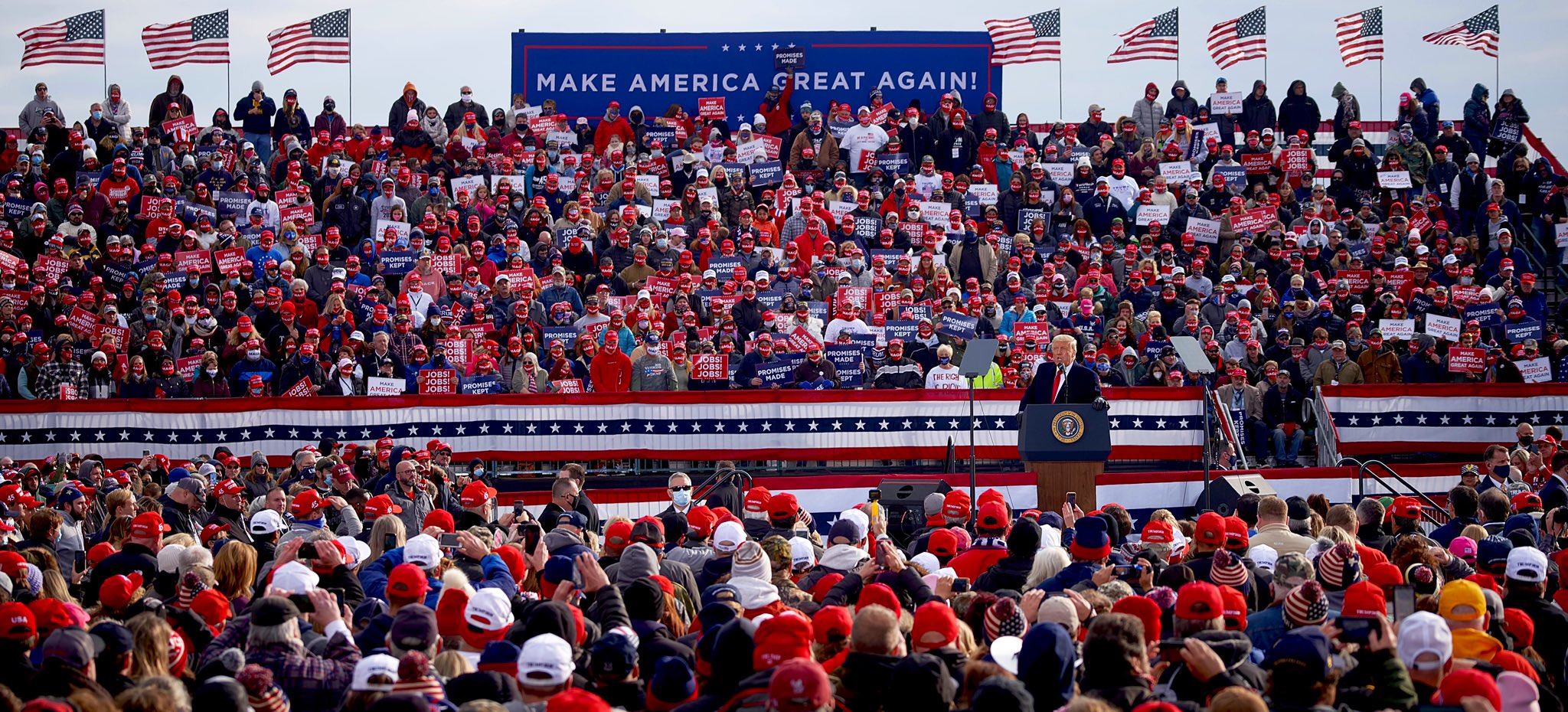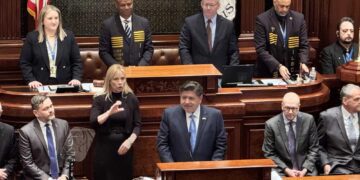By Illinois Review
In a move that has sent shockwaves through political and legal circles alike, Cook County’s own Judge Tracie R. Porter, a figure more commonly associated with the adjudication of traffic violations than with high-stakes electoral disputes, has issued a ruling with far-reaching implications for the 2024 presidential race. This decision, to remove former President Donald Trump from the Illinois primary ballot, has sparked a firestorm of controversy, raising serious questions about judicial overreach, the politicization of the judiciary, and the sanctity of the electoral process.
Judge Porter, who presides over cases in the Traffic Division of the Richard J. Daley Center, has, with this single ruling, catapulted herself into the center of a national debate on the eligibility of presidential candidates. Born in Chicago in 1968, Porter brings to her role a lifetime of experience in the city, along with a career that, until now, has largely focused on the infractions of daily commuter life rather than the constitutionality of presidential candidacies.
The ruling to disqualify Trump, ostensibly based on a contentious interpretation of the 14th Amendment, has been met with immediate criticism from conservative circles and the Trump campaign itself. The campaign’s spokesperson, Steven Cheung, lambasted the decision as “an unconstitutional ruling” from “an activist Democrat judge,” highlighting the perceived political motivations behind the judge’s decision. This criticism taps into a broader conservative concern over what is viewed as a systematic campaign to undermine Trump’s candidacy through legal maneuvers rather than through the democratic process.
Critics of Judge Porter’s decision point to her background in traffic court as a curious foundation for such a nationally consequential ruling. They argue that the leap from overseeing traffic violations to interpreting constitutional law on matters of national electoral significance represents a dramatic and potentially troubling expansion of judicial reach. This concern is amplified by the broader context in which the ruling was made—amidst a heated and highly polarized political environment, where the eligibility of candidates has become a weaponized issue.
The decision comes on the heels of the Illinois State Board of Elections’ determination that it lacked the authority to remove Trump from the ballot, based on the events of January 6, 2021. Judge Porter’s ruling not only contradicts this stance but also positions her ruling as a pivotal moment in the ongoing debate over Trump’s eligibility, setting the stage for a legal battle that could have implications far beyond the 2024 primary.
As the Trump campaign vows to appeal the ruling, the case underscores the complex interplay between state authority, federal constitutional law, and the rights of candidates and voters alike. The involvement of a judge from the traffic division in such a dispute is particularly noteworthy, highlighting the unpredictable ways in which the judiciary can influence the political landscape.
This incident raises important questions about the role of judges in electoral matters and the potential for judicial positions, traditionally seen as apolitical, to be thrust into the center of partisan battles. The ruling by Judge Porter, regardless of its ultimate legal fate, serves as a reminder of the delicate balance between the judiciary’s role in safeguarding the constitution and the risk of perceived overreach into political matters.
As the legal and political communities continue to digest the implications of this ruling, the broader debate over electoral integrity, judicial impartiality, and the qualifications for presidential candidates remains as contentious as ever. With the Supreme Court’s perspective on similar cases pending, the outcome of this appeal could have significant repercussions for how electoral disputes are resolved in the United States.
In the end, the controversy surrounding Judge Porter’s decision is not just about the legal qualifications of a single candidate but about the principles that underpin America’s democratic process. As the nation watches this legal drama unfold, the debate over who gets to decide a candidate’s eligibility for the ballot—a traffic court judge, the judiciary at large, or the electorate itself—continues to resonate across the political spectrum, shaping the contours of American democracy.









